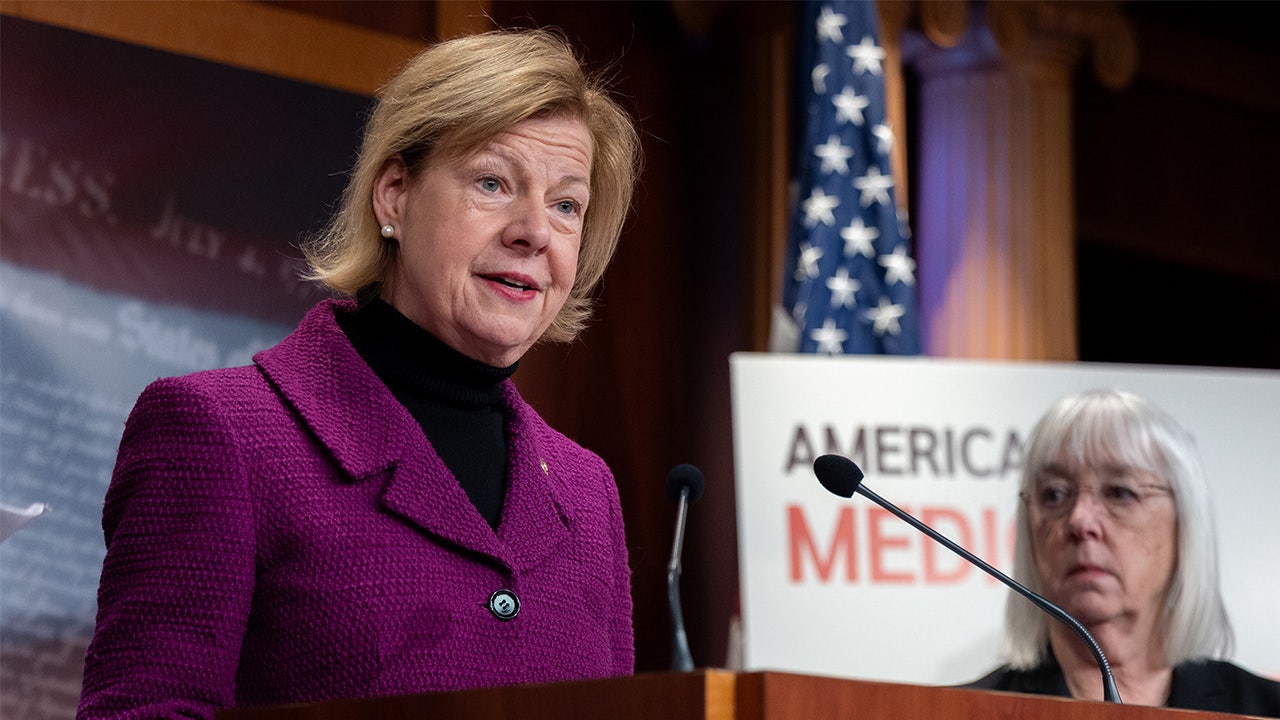Politics
EXCLUSIVE: Dems to force votes on Medicaid as it becomes sore point in Senate budget fight

Democrats Prepare to Challenge Senate Republicans on Medicaid During Budget "Vote-a-Rama"
As the Senate gears up for a high-stakes "Vote-a-Rama" session on Thursday evening, Democrats are strategizing to force Republican senators to go on record regarding Medicaid, a program that has become a contentious issue in ongoing budget negotiations. With Medicaid cuts potentially looming, Democrats aim to spotlight the risks these cuts pose to vulnerable populations, particularly in states where Medicaid is a critical lifeline. Sen. Tammy Baldwin (D-Wis.), who recently secured re-election in a state that also supported former President Donald Trump, is leading the charge by introducing multiple amendments to the Senate GOP’s budget resolution. Baldwin’s efforts are specifically designed to safeguard Medicaid access and funding for key groups, including senior citizens, children, individuals struggling with addiction, rural Americans, and pregnant women. Her goal is to hold Republicans accountable for their stance on Medicaid, a program that millions of Americans rely on for essential healthcare services.
Spotlight on Medicaid: A Crucial Lifeline for Millions of Americans
Medicaid, a joint federal-state program, provides healthcare coverage to over 90 million Americans, including low-income individuals, families, children, and people with disabilities. It is also a vital resource for rural communities, where access to healthcare is often limited. Baldwin’s amendments aim to protect Medicaid from potential cuts proposed in the Republican budget. These cuts could have far-reaching consequences, particularly for states that heavily depend on Medicaid to cover their residents. For example, in states like Louisiana, Arkansas, Kentucky, and West Virginia, more than 25% of the population relies on Medicaid or the Children’s Health Insurance Program (CHIP). By targeting these amendments, Baldwin is emphasizing the human cost of Medicaid cuts, which would disproportionately affect low-income families, seniors requiring long-term care, and pregnant women who rely on the program for critical healthcare services.
Political Strategy and the "Vote-a-Rama" Process
The "Vote-a-Rama" is a legislative marathon during which senators can introduce an unlimited number of amendments to a budget resolution, forcing members of both parties to take potentially politically damaging votes. This process is a strategic tool for Democrats to expose divisions within the Republican caucus and highlight controversial aspects of the GOP budget. Baldwin’s amendments are expected to be voted on after a series of measures introduced by Senate Minority Leader Chuck Schumer (D-N.Y.) and other Democrats. The first amendment of the evening is likely to focus on preventing the renewal of tax cuts for billionaires and millionaires, as outlined in the 2017 Tax Cuts and Jobs Act (TCJA). This amendment would bar reconciliation bills from offering tax breaks to individuals earning over $1 billion annually, a move that could further exacerbate tensions between the two parties.
Republican Senators Face Pressure on Medicaid and Taxes
Republicans in the Senate are under increasing pressure to clarify their position on Medicaid and tax cuts. Sen. Josh Hawley (R-Mo.) has already expressed opposition to massive Medicaid cuts, stating, "I don’t like the idea of massive Medicaid cuts. We should have no Medicare cuts of any kind." This sentiment reflects the broader concerns of Republicans who represent states with significant Medicaid enrollment. However, the GOP’s budget resolution has drawn criticism for prioritizing tax breaks for the wealthy over healthcare for vulnerable populations. Baldwin is leveraging this narrative to challenge Republicans to "put their money where their mouth is" and vote against Medicaid cuts. Her amendments are designed to force Republicans into a difficult political position, where they must choose between preserving Medicaid funding and advancing their tax agenda.
The Broader Implications of the Budget Debate
The budget debate unfolding in the Senate is not just about numbers; it is a reflection of deeply divided priorities in Washington. Democrats are pushing to expand access to healthcare and reduce costs for working families, while Republicans are advocating for tax cuts and fiscal restraint. The "Vote-a-Rama" session will serve as a critical test for both parties, as they seek to demonstrate their commitment to their respective policy goals. For Senate Republicans, the challenge is particularly acute, as they navigate the complexities of balancing their budget priorities with the political risks of cutting programs like Medicaid. The outcome of this debate will have significant implications for the 2024 elections, as voters assess which party is more committed to addressing their healthcare needs.
A Calculated Risk for Senate Republicans
Senate Republicans are proceeding with the "Vote-a-Rama" despite potential political risks, including backlash from voters in Medicaid-dependent states. The decision to move forward with the budget resolution has been endorsed by Vice President JD Vance, who gave GOP senators the green light to proceed. However, this strategy comes with significant risks, particularly as former President Donald Trump has publicly endorsed the House GOP’s budget over the Senate’s version. The tension between the two chambers highlights the challenges Republicans face in uniting behind a cohesive budget strategy. As the "Vote-a-Rama" gets underway, all eyes will be on Senate Republicans to see how they navigate these complex political and policy landscapes. The votes they cast on Medicaid and tax cuts will not only shape the future of these programs but also influence the political narrative heading into the next election cycle.


















